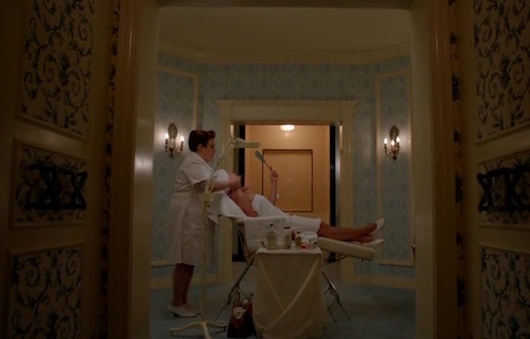
The Disagreements
by ETHAN PETERSON
Feud
creator Ryan Murphy
FX
Mannerisms have always been Jessica Lange's great forte as an actress. She is most deft at using her head, which never seems to be in motion, yet it is generally turned in exactly the right direction — away from the inevitable, and towards a possible recusal of the pain any other avenue offers. Feud's Ryan Murphy (American Horror Story) loves her for these subtle contortions, and for how her unmistakable vocal properties can accelerate from the austere iciness with which we associate her finest roles, to a hot, insensate rage. Joan Crawford was nothing compared to her.
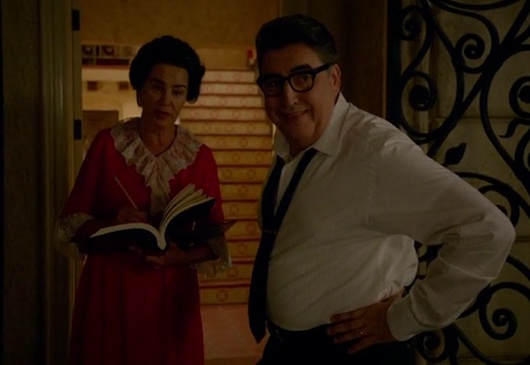
In Feud, Alfred Molina plays director Robert Aldrich. Educated in Providence, RI, Aldrich became a brilliant director after running away, West, from his family fortune. Aldrich becomes the weirdly sympathetic center of Feud, which is not terribly surprising given that he has to deal with both Bette Davis (Susan Sarandon), one of the strangest looking women of her time, and Crawford herself, who was a slightly better human being, if Feud hews at all close to the truth, but no picnic.
Aldrich was an artist in the studio system. His story is at least the equal of any actor, but he is merely an accessory to the main story here, which is, I'm not quite sure. Murphy makes a lot of noise around the idea of a feminist allegory to this story, whose essential composition — that women in the same business struggle to get along — is anthetical to the stated point.
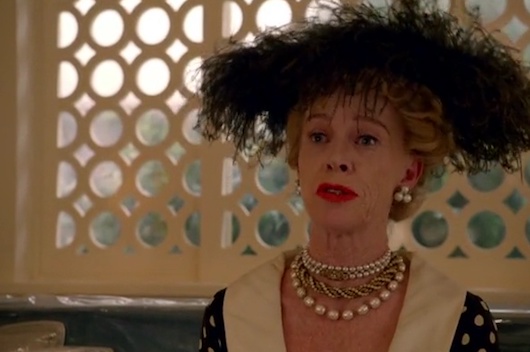
The rest of Murphy's cast is filled with exciting actors in familiar roles. Kathy Bates and Catherine Zeta-Jones make cameos in the pilot, and the wonderful Judy Davis stars as a reporter. Her scenes with Lange are both the most humorous and the most joyful. In contrast, Sarandon does not seem to have the quite the same joy in hamming it up, sensing that this approach is a bit facile. Murphy doesn't rest the weight of this show on its made-up surfaces, but he knows how good he is at that part of things.
There really is not anything close to enough material for eight episodes here, and Feud suffers from frequent slow patches where he relies on the basic charisma of his actors and his Douglas Sirk-esque sets to fill time between the spicy confrontations that feature prominently. It is never very clear why exactly Ms. Davis and Ms. Crawford detest each other from the start, only that we should not allow it to undermine the very basic theme that there are not enough roles for older actresses.
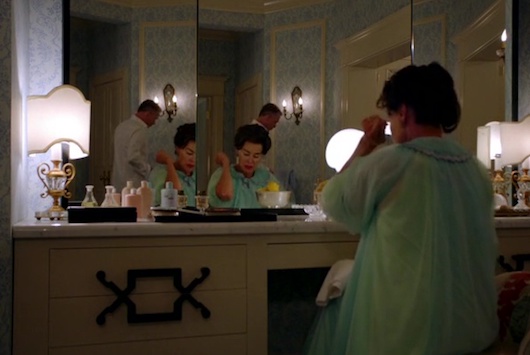
I don't know if we can exactly say that this is completely true anymore, given that Lange and Sarandon have not stopped working at all in the past two decades. The idea that any actor should be entitled to work, when they rely entirely on writers and directors for their roles, is a bit inexplicable. Here Joan Crawford does not rest on her laurels when parts are not coming her way: she reads every book with a woman on the cover of it before happening upon a paperback copy of Whatever Happened to Baby Jane?
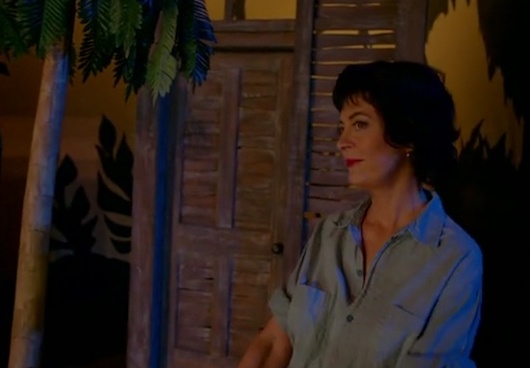
There is a lot less joy, by half, in the Bette Davis sections of Feud. Positioned as the more serious actress, Davis' overwrought style is very much out of date. Rewatching Whatever Happened to Baby Jane? the Aldrich film on which the two women clashed, is very difficult because of these performances. Aldrich's director is impressively modern, but he seems to have to work around the dated style of acting that Davis made famous. The idea that we are entitled to the same success in old age that we achieved in youth, regardless of the work's quality, is a very American notion.
Ethan Peterson is the reviews editor of This Recording.
